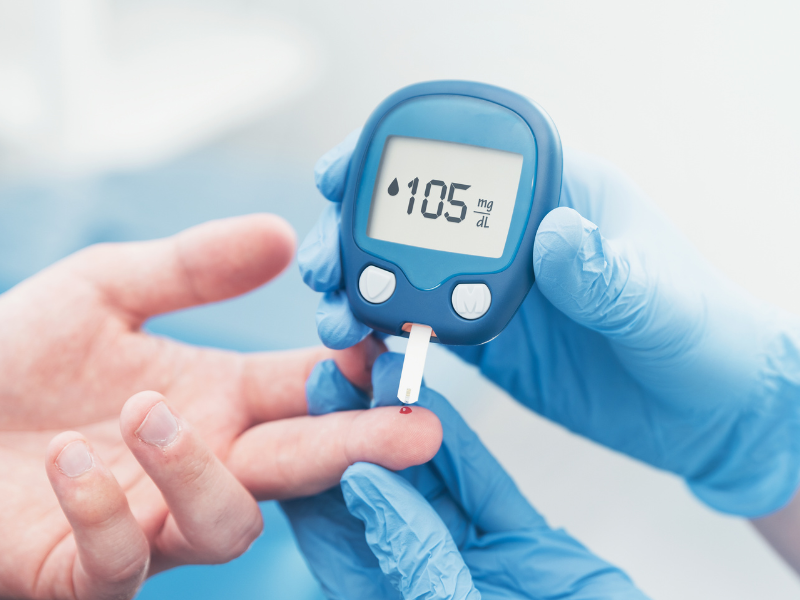


Oatmeal is often recommended for its nutritional value and heart-healthy benefits. However, despite its widespread popularity, people have found that consuming oatmeal on a daily basis may not actually be healthy for them. In this article, I will share the why I stopped eating oatmeal and discuss some of the lesser-known facts you probably do not know, including concerns about blood sugar levels, gut health, and other nutritional hacks.
Nutritional Value and Health Benefits of Oatmeal
Oatmeal is renowned as a healthy breakfast, and widely recognized as a nutritious grain with numerous health benefits. Including oatmeal in your diet is linked to several benefits for the body [1]. Let’s explore some of the benefits of including oatmeal in your diet:
Supports Gut Health and Digestion

Oatmeal is vital for the large intestine since it contains soluble fibre. That’s why cooked oatmeal will help you ease out the bowels, prevent constipation, and ensure that you have the right type of gut-friendly bacteria. These digestion benefits are particularly helpful to anyone seeking a solution to enhance digestion.
Packed with Essential Nutrients
Besides fibre, oatmeal contains other useful vitamins and minerals, including iron, magnesium, and B-compounds. These nutrients are essential for energy production, muscle functioning, strength, and overall health.
You may also like: Oat Milk Vs Soy Milk: Which Is The Better Plant-Based Milk?
Helps with Weight Management

One key nutrient in oatmeal that deserves special attention is fiber, which plays a vital role in weight loss and overall health. Oatmeal is low in calories, and its soluble fiber content helps promote a feeling of fullness, reducing the likelihood of reaching for a second serving. This makes oatmeal ideal for individuals looking to lose weight without constantly feeling hungry.
Stabilizes Blood Sugar Levels
Oats are slow-digesting carbohydrates that can help maintain stable blood sugar levels. Their gradual release of energy makes them excellent breakfast meals, especially for people with conditions like diabetes or insulin resistance [2].
What Are the Negative Effects of Oatmeal?
While people have taken time to appreciate oatmeal as a good food due to its fibre, especially soluble fibre like beta glucans, and its benefits for the heart, not everyone can consume it. Some people, especially those with insulin issues, have reported high blood sugar elevation after consuming oatmeal.
Certain varieties, such as instant oats, are heavily processed and often sweetened, reducing their nutritional value. Moreover, some people report adverse effects like digestive discomfort, especially those who have digestive issues and require an allergy-free diet.
What Is the Disadvantage of Eating Oatmeal?
While oatmeal is often recommended for its health benefits, it isn’t without drawbacks. Oatmeal is not ideal for everyone because some people may have adverse effects from eating it, such as blood sugar increases or stomach pain. Let’s examine a few possible drawbacks and reasons why I stopped eating oatmeal [3].
Blood Sugar Spikes

An important consideration with oatmeal is its potential risks; it is high on the glycemic index, particularly in refined instant oats. This means that while some people may get a spike in their energy level after taking oatmeal, their energy levels will drop suddenly. This effect is even more pronounced in individuals with diabetes or insulin resistance, making oatmeal a less suitable option for them.
You may also like: The No Added Sugar Diet: What Is It and Who Is It For?
Increased Hunger
While oatmeal contains a good amount of carbohydrates and is satisfying, it can leave you feeling hungry sooner than you might need. This is particularly true if you don’t pair it with protein sources or healthy fats. This may provoke people to binge eat rather than avoiding foods for weight management.
Digestive Discomfort

While oatmeal proudly contains high amounts of fibre, which helps digestion, not everyone can handle it. The hottest type of fibre in oats is soluble fibre, which may lead to some bloating or other digestive disturbances that people with grain sensitivity often experience. Moreover, people with celiac disease or gluten sensitivity may experience similar issues if the oats are processed in facilities that also handle gluten-containing grains, raising the risk of cross-contamination.
You may also like: Top 20 Gluten-Free Snacks 2024
Nutrient Absorption Issues
Oats contain antinutrients like phytic acid, which can interfere with absorbing essential nutrients like calcium, iron, and zinc by binding them to the digestive tract. This can eventually cause depletion of these nutrients, especially if oatmeal is consumed daily without including other nutrient-rich foods in the diet.
Processed Oats Can Contain Added Sugars

Many processed oats, especially instant varieties, come with added sweeteners and flavors, which often means extra sugar. These added sugars can lower the meal’s nutritional value and reduce its ‘heart healthy diet’ status. While it’s a popular choice for breakfast, one must consider these added sugars as they may lead to weight gain or problems controlling blood sugar levels.
You may also like: No Sugar No Flour Diet: The Ultimate Fat-Burning Solution
Final Words
So, why did I stop eating oatmeal? The disadvantages outweighed its nutritional benefits. Considering the impact of oatmeal on my blood sugar levels, possible digestive issues, and interfering with the absorption of nutrients, I saw that oatmeal was no longer helpful to my health objectives.
However, this means that there is no reason why everyone should avoid oatmeal, which is vital in their diet. Also, it is our responsibility to listen to what our body is telling us or, when the effects go wrong, seek medical help. For many, oatmeal remains on the list of permissible products beneficial for the heart and stomach. Listening to your body and adopting a healthy diet is essential, as with any food! For more resources on how to lead a healthy life, check out the JustFit app!
Why do cardiologists say not to eat oatmeal?
What is the disadvantage of eating oatmeal everyday?
What are the different types of oats?
WebMD Editorial Contributor. (November 27, 2022). Health Benefits of Oatmeal. Available at: https://www.webmd.com/diet/health-benefits-oatmeal.
Jon Johnson. (June 26, 2023). Is oatmeal good for people with diabetes? Available at: https://www.medicalnewstoday.com/articles/311409.
Emily Joshu. (September 17, 2023). Cardiologist reveals why oatmeal should NOT be your go-to breakfast. Available at: https://www.dailymail.co.uk/health/article-12509825/cardiologist-SHOULDNT-eat-oatmeal.html
Olivia Anderson. (January 21, 2024). 7 Disadvantages Of Eating Oats Daily in 2024. Available at: https://healthbliz.com/nutrition/disadvantages-of-eating-oats-daily/.





